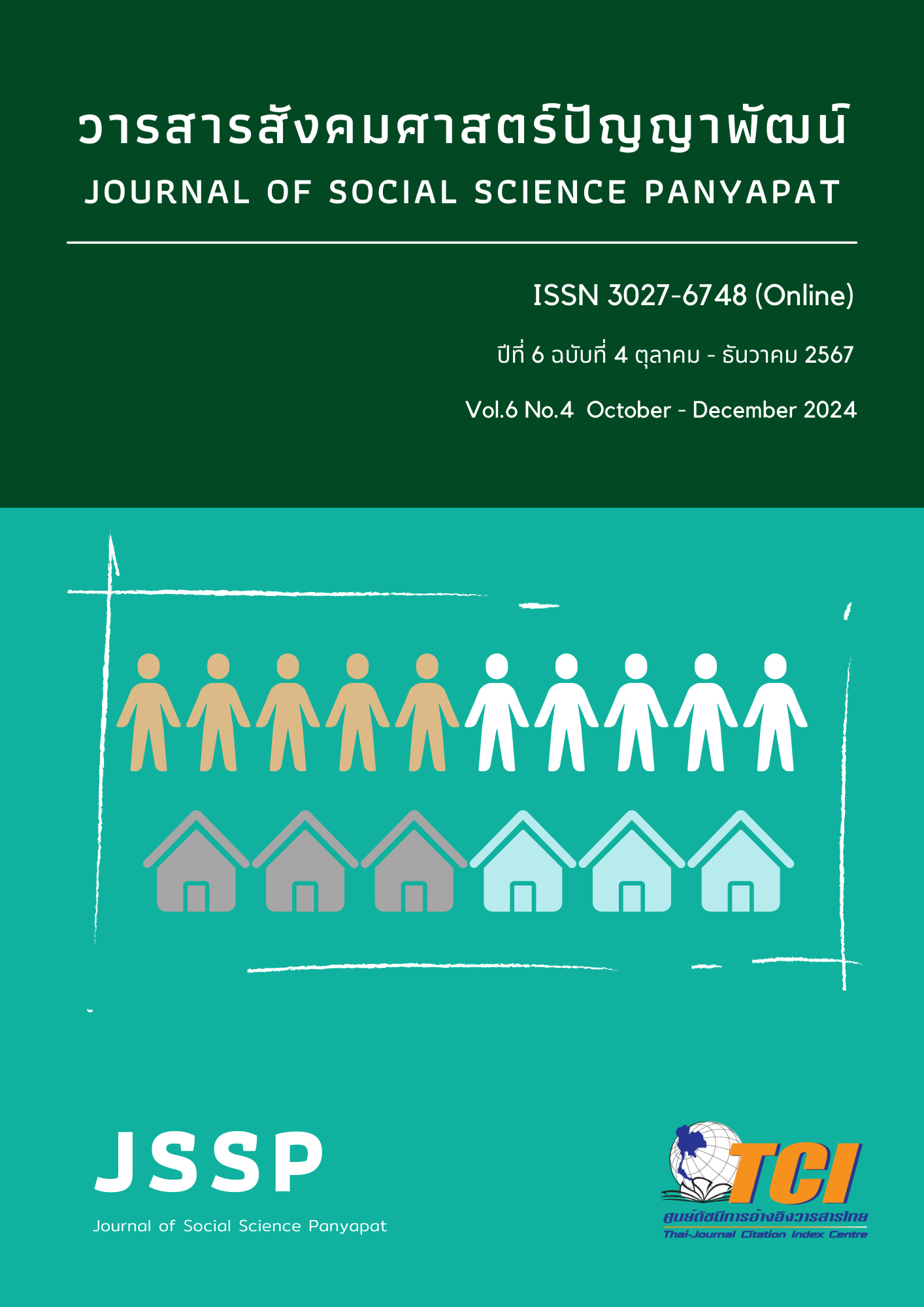Academic Administration Based on The Four Sagahavatthu Doctrines of the Institutes in Takuapa Educational Coordinating Center under Phanga-nga Primary Educational Service Area Office
Keywords:
Academic Administration, Academic Work, The Four SagahavatthuAbstract
The purposes of this research were: (1) to study the states on the academic administration of the institutes in Takuapa Educational Coordinating Center under the Office of Phang-nga Primary Educational Service Office, (2) to study the academic administration based the four Sangahavatthu of institutes in Takuapa Educational, (3) to present and evaluate the academic administration based the four Sangahavatthu of institutes in Takuapa Educational. This research was qualitative research. The data of this research consisted of the in-depth interview of 15 key informants, 5 in-depth informants and 7 focus group experts. The data analysis was inductive analysis. The result of the study found that: (1) The States on the Academic Administration of the Institutes in Takuapa Educational Coordinating Center under the Office of Phang-nga Primary Educational Service Office consisted of 1) Curriculum Administration 2) Learning Management 3) Evaluation and Assessment 4) Internal Supervision. The overall of the states revealed that it followed the processes, but it lacked the participation following the duty. (2) The Academic Administration Based the four Sangahavatthu of Institutes in Takuapa Educational Coordinating Center is leading The Academic Framework Consisting of 1) Curriculum Administration Based the four Sangahavatthu Based the four Sangahavatthu as Follows: 1) Generosity (or charity) 2) Convincing speech 3) Rendering service 4) Equal treatment (or equality consisting in impartiality). (3) The Presentation of The Academic Administration of The Institutes in Takuapa Educational Coordinating Center Showed That The all Experts Agreed that it was Appropriate, Possible and Beneficial and Functional Consisting of Generosity (or charity), Convincing speech, Rendering service and Equal treatment (or equality consisting in impartiality).
References
นิภาพร เหล่าพรมมา. (2558). การบริหารบุคลากรทางการศึกษาตามหลักหลักสังคหวัตถุ 4 ของผู้บริหารโรงเรียนพระปริยัติธรรม แผนกสามัญศึกษากลุ่มที่ 7 ในเขตอำเภอเมือง จังหวัดขอนแก่น. (พุทธศาสตรมหาบัณฑิต, มหาวิทยาลัยมหาจุฬาลงกรณราชวิทยาลัย).
ปรียาพร วงศ์อนุตรโรจน์. (2555). การบริหารงานวิชาการ. กรุงเทพฯ: พิมพ์ดี.
พระครูประทีปธรรมาภิรักษ์ (ประพันธ์ พนฺธุธมฺโม). (2559). การบริหารงานวิชาการตามหลักสังคหวัดถุ 4 ของผู้บริหารโรงเรียนประถมศึกษา เขตบางขุนเทียน สังกัดกรุงเทพมหานคร. (พุทธศาสตรมหาบัณฑิต, มหาวิทยาลัยมหาจุฬาลงกรณราชวิทยาลัย).
พระครูไพโรจน์กิจจาทร (สกุล สุภทฺโท). (2559). การศึกษาความคิดเห็นของครูต่อการบริหารงานบุคคลตามหลักสังคหวัตถุ 4 ของผู้บริหารโรงเรียนประถมศึกษา เขตประเวศ สังกัดกรุงเทพมหานคร. (พุทธศาสตรมหาบัณฑิต, มหาวิทยาลัยมหาจุฬาลงกรณราชวิทยาลัย).
พระจตุพร เทวธมฺโม (ใจยิ้ม). (2559). การบริหารงานวิชาการตามหลักหลักสังคหวัตถุ 4 ของโรงเรียนประถมศึกษา เขตคลองเตย สังกัดกรุงเทพมหานคร. (พุทธศาสตรมหาบัณฑิต, มหาวิทยาลัยมหาจุฬาลงกรณราชวิทยาลัย).
พระพรหมคุณาภรณ์ (ป.อ.ปยุตโต). (2552). พุทธธรรม ฉบับปรับปรุงและขยายความ. กรุงเทพฯ: โรงพิมพ์มหาจุฬาลงกรณราชวิทยาลัย.
มหาจุฬาลงกรณราชวิทยาลัย. (2539). พระไตรปิฎกภาษาไทย ฉบับบมหาจุฬาลงกรณราชวิทยาลัย. กรุงทพฯ: โรงพิมพ์มหาจุฬาลงกรณราชวิทยาลัย.
ราชกิจจานุเบกษา. (2562). พระราชบัญญัติการศึกษาแห่งชาติ พ.ศ. 2542. ราชกิจจานุเบกษา เล่ม 136 ตอนที่ 74 ก, (19 สิงหาคม 2542).
สำนักงานเขตพื้นที่การศึกษาประถมศึกษาพังงา. (2566). บริบทสำนักงานเขตพื้นที่การศึกษาประถมศึกษาพังงา. สืบค้น 5 สิงหาคม 2566. จาก https://www.phangngaedarea.go.th/site/structure/.
สำนักงานคณะกรรมการการศึกษาแห่งชาติ. (2540). อบรมผู้บริหารสถานศึกษา หมวด 4 เอกสาร ประกอบการอบรมหลักสูตร. กรุงเทพฯ: พริกหวานกราฟฟิค.
Downloads
Published
How to Cite
Issue
Section
License
Copyright (c) 2024 Journal of Social Science Panyapat

This work is licensed under a Creative Commons Attribution-NonCommercial-NoDerivatives 4.0 International License.


